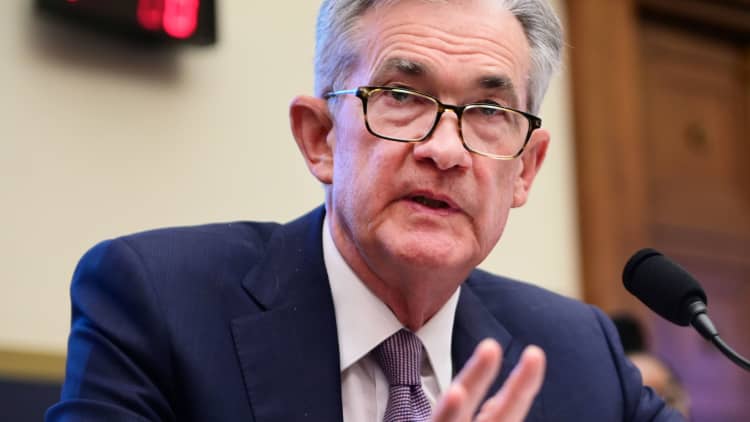
Amid a roaring stock market and ever-increasing levels of corporate and government debt, Federal Reserve Chairman Jerome Powell said Thursday he does not see signs of bubbles brewing or immediate dangers being posed by trillion-dollar deficits.
"If you look at today's economy, there's nothing that's really booming now that would want to bust," Powell said in testimony before the House Budget Committee. "In other words, it's a pretty sustainable picture."
He added that the dollar's status as the global reserve currency is helping forestall any trouble from the nation's growing debt load, which just surpassed $23 trillion.

"We are the strongest country, we have the best institutions, we have the best labor force," he said. "We have such strengths, and I think possibly the day of reckoning could be quite far off."
The central bank chief responded to a question as to whether he sees, as former Fed Chairman Alan Greenspan did in 1996, signs of "irrational exuberance" in financial markets, as well as another about the status of the government's fiscal picture.
While stocks continued to rise after Greenspan made the now-iconic observation, the line often is cited as a warning shot for the dot-com bust that would happen a few years later.
In the current case, stock market averages have continued to make new highs. Corporate debt is close to $6.5 trillion, nearly double where it was leading into the financial crisis.
Overall, the U.S. economy is in the midst of its longest period of growth, a gain that dates to mid-2009 that has generally been slower than other recoveries but also steady.
Powell said the nature of expansions now is to last longer than they have in the past.
"We think that really is because we are no longer facing high and volatile inflation," he said. "What we've seen is three of the four longest business cycles in U.S. recorded history have been quite recent."
He did issue warnings about several dangers such as a manufacturing slowdown and trade headwinds, and he again called the path of government debt unsustainable. The national debt is expanding at a faster pace than economic growth.
"I think by definition that makes it unsustainable," Powell said of the debt. "Our children and grandchildren will be paying more of their tax dollars for interest on the borrowing that we've done."
Solving the problem, he added, will require the economy growing faster than the debt, "and you have to do that for 10 or 20 years."


